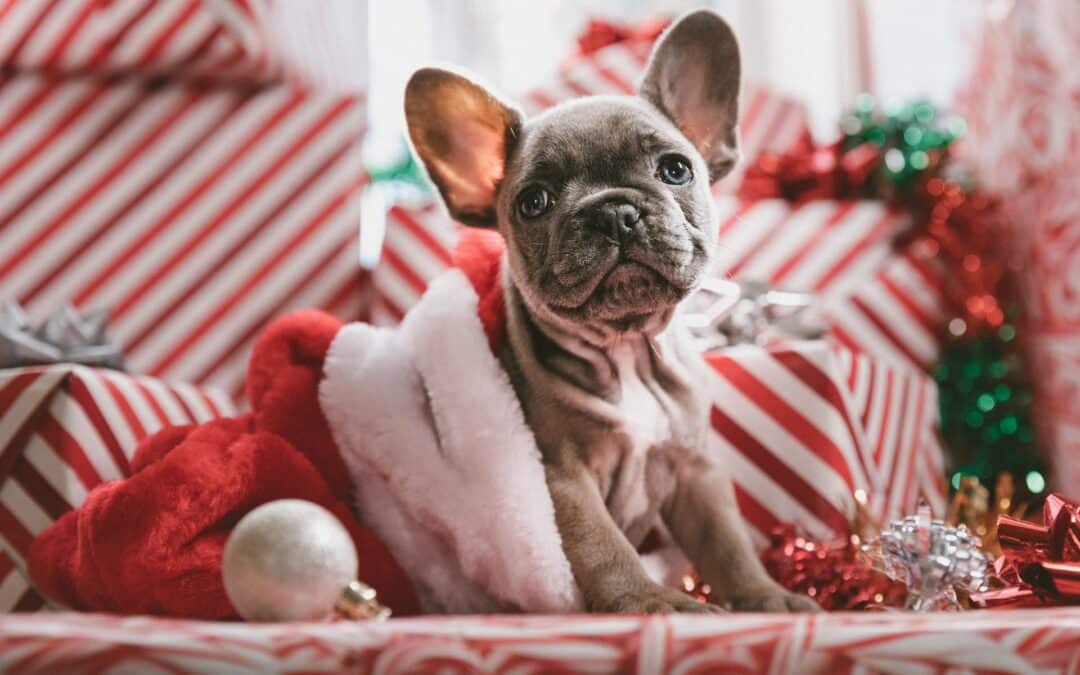Some holiday foods that are safe and delicious for you could wind up hurting your dog. This can be because of the differences in our digestive systems, the size differences between humans and dogs, and other factors. Understanding which foods to avoid can help you make wise choices and secure your pet’s wellbeing this holiday season.
Why Some Foods Cause More Than an Upset Tummy
Digestive systems vary greatly between species—that is why rabbits can survive eating only plants, why wolves need to eat meat, and why humans can digest both. Although we are both omnivores, dogs and humans have very different digestive systems, so you need to be wary of what your dog consumes.
Table scraps can be very bad for a dog’s health. Things like turkey skin, butter, and other foods with high fat content can cause lasting issues like obesity or an enlarged pancreas. These conditions require constant monitoring, special diets, and sometimes medications. Understanding your dog’s body language can help you notice if they are in pain or are feeling ill and hiding it.
Other foods can cause instantaneous problems, like allergic reactions or vomiting. For example, if a dog eats a whole tray of Christmas cookies they could become very sick. The mixture of chocolates, sweeteners, and spices can cause seizures, excessive vomiting, diarrhea, and dehydration. It could even be deadly. If you are concerned that your dog might have ingested something harmful, we recommend contacting your veterinarian right away.
Seven Holiday Foods to Keep Away from Your Dog
1: Cooked Bones
Because they splinter so easily, cooked bones are especially dangerous. The shards can cause serious damage to the soft tissues of a dog’s mouth, throat, and stomach. Oral damage can often be healed quickly and with little risk using antibiotics and stitches if the cuts are deep. However, damage to the throat and stomach requires surgery, and can cause intense pain or even death.
2: Grapes and Raisins
While perfectly safe for humans, grapes and raisins can be deadly for dogs. Just one grape is enough to send smaller dogs into sudden kidney failure.
3: Cookies, Candy, and Chocolates
Many types of cookies, candies, and chocolates contain ingredients that are harmful to dogs. Theobromine (found heavily in chocolates), caffeine, xylitol (an artificial sweetener), and nutmeg are the main culprits. These ingredients can cause vomiting and diarrhea at best, and death at worst.
4: Fatty Foods
Pork, steak, the skin of chicken and turkey, and other high-fat foods can greatly affect your dog’s digestive system. They can cause diarrhea and vomiting along with an inflamed pancreas, which affects your dog’s ability to digest other foods.
5: Garlic and Onions
Shallots, onions, garlic, and all other members of the allium family are very dangerous for dogs. They contain compounds that break down a dog’s red blood cells, causing problems with the way oxygen is circulated in their system.
6: Yeasted Dough
It may sound crazy, but your dog’s stomach is the perfect breeding ground for yeast. This means that uncooked dough that contains yeast can rise inside their stomach, causing pain and bloating. If too much dough is ingested, it could even cause ruptures. Severe bloating and ruptures often require surgery to heal.
7: Alcohol
Because alcohol is indigestible for dogs, drinking it can cause problems throughout their bodies. It can cause difficulty breathing, poor circulation leading to lower body temperature, seizures, and many other problems.
Expert Veterinary Care No Matter the Season
The holidays can be a dangerous time for pets, so you may need to take a few precautions. Remind guests and family to not feed your pet. Periodically check that dangerous food items are not within reach of curious dogs. And secure all garbage cans so that dogs can’t get into any of the table scraps that are so bad for their health.
But if something happens and your pet requires urgent care, East Valley Animal Hospital offers emergency appointments along with check-ups and illness checks. Our dedicated staff has the knowledge, equipment, and passion it takes to provide the very highest level of veterinary care. Contact us today if you have any questions or would like to book an appointment for a wellness exam.
Images used under creative commons license – commercial use (12/23/23). Photo by Jakob Owens on Unsplash.

